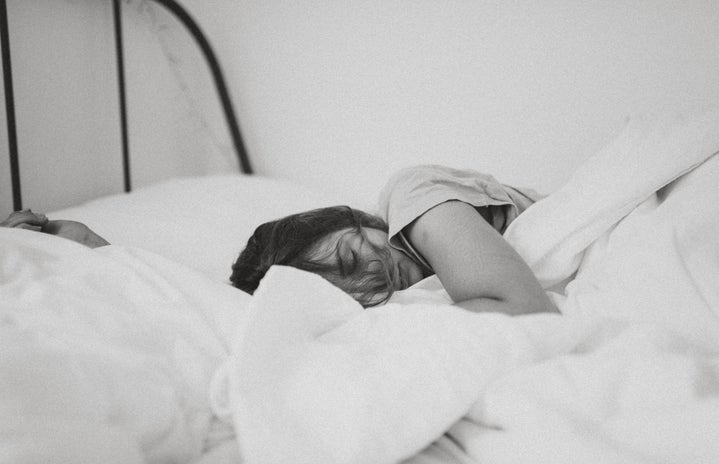Everyone I know snores. Some sputter like engines, some shake the ground like earthquakes, and some have clarinets for nostrils and squeak out little notes at two in the morning. Whatever the style, whatever the volume, I swear I’ve heard it all. While sleep is taken for granted by those of us lucky enough to breathe easily, it’s a tricky subject for snorers, especially when it involves other people. By befriending these weapons of mass destruction, I involuntarily learned about the struggles of SWS (snoring-while-sleeping), and as a result, I’m shocked but happy every time I realize my friends are still alive.
It’s a wonder how they don’t choke.
One of the reasons I fear for my friends’ lives is the fact that their lungs are a choking hazard. With every inhale, air passes through their nasal cavities, into their pharynxes, down their tracheas, bronchi, bronchioles, alveoli, and sputters from their lips once carbon dioxide makes its way out. Simple, right? But the air in a snoring system struggles and wiggles its way down like a middle aged man trying to relive his childhood on a slide. Fire departments help middle aged men pop off of slides, but they can’t do much when your lungs are choking you.
They must be wary of smothering.
Lungs aren’t usually the reason behind asphyxia. Most often, the culprits are carbon monoxide, spacesuit defects, and people who are tired and exasperated and just want some peace and quiet so they can get to sleep. I spent three months this summer with a symphony of snorers and often found myself getting to sleep at sunrise, when everyone was exiting REM and bodies were subconsciously getting ready to wake up. It was a special kind of hell I never want to revisit and, yes, it can drive you crazy. While I never held a pillow over someone’s face, I did spend an unreasonable amount of money on earplugs just to realize they are ineffective against severe cases of SWS. The bottom line is, for the most part, suffocating someone is not an option. Nevertheless, snorers may be at a higher risk of asphyxiation by irritated victims.
There will be videos.
A victim of a SWS neighbour is a victim of sleep deprivation. Sleep deprivation, most commonly found in students and workers, can occur for a number of reasons, including deadlines, homework, and general irresponsibility when using electronic devices. Like a double-edged sword, phones can distract from sleep but they can also comfort someone who is unable to fall asleep. YouTube, Instagram, and Snapchat can help alleviate irritation, but inevitably sleep deprived victims will find the camera button and will record a snorer snoring. It was a technique I often employed to help myself pass the time, sending short Snaps to my snorer with captions such as, I forget what it’s like to sleep, and, Why are you doing this to me? Mark my words, there will be videos.
Despite everything, at the end of the day—rather, in the morning—snorers are more than their nasal gargles. They’re daughters and sons, mothers and fathers, sisters and brothers… Besides, everyone has their own unique sleeping habits. Some people catch flies in their mouths and wake up in puddles of drool, some people mumble and grumble, and some people sleep with their eyes open and freak me out with their vegetable faces and empty eyes every time I walk by. Everyone is a little weird. The important thing is to embrace it and stay away from people who may suffocate you.


